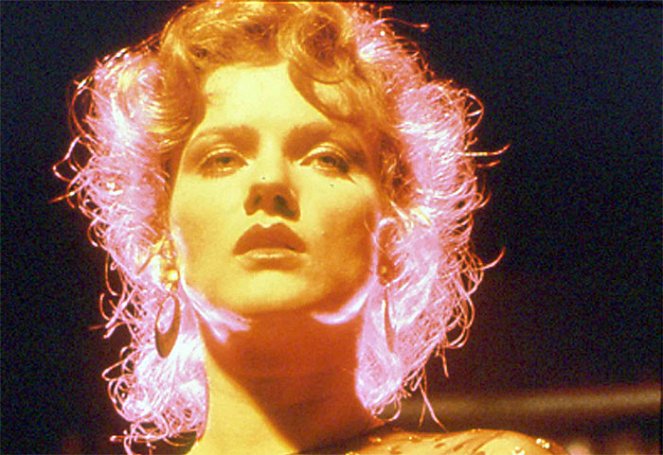Director:
Rainer Werner FassbinderCámara:
Xaver SchwarzenbergerReparto:
Barbara Sukowa, Armin Mueller-Stahl, Mario Adorf, Matthias Fuchs, Helga Feddersen, Karin Baal, Ivan Desny, Elisabeth Volkmann, Hark Bohm (más)Streaming (1)
Sinopsis(1)
Lola, una cantante de cabaret, seduce al señor von Bohm, un delegado de urbanismo. Sin embargo, al honrado funcionario se le plantea un grave conflicto moral cuando descubre que el cabaret es la tapadera de un burdel y las cantantes, prostitutas. (Filmin)
Reseñas (2)
Of all the films by German director R. W. Fassbinder, Lola is probably the most likable with its slightly comical exaggeration, and not least the cast, led by the charming Barbara Sukowa in the role of a luxury prostitute and Armin Mueller-Stahl as the characterful chief of the building authority. In most of his films, Fassbinder is left-wing, activist, and overly critical, but here he transforms his opposition to the establishment into clever satire that undermines the German economic miracle of the 1950s. Fassbinder subtly but effectively reminds us that the society of the 1950s is a direct continuation of Germany in the 1940s with its brown past. He also observes the corruption of both traditional and new elites and the fact that not everyone benefits equally from the economic rise. Those who have connections and often questionably accumulated capital get rich, while the rest are left with just the crumbs from the table. The character of the main protagonist, the idealistic Von Bohm, reminds us that almost everyone is corruptible, and it's just a matter of finding their price. Overall impression: 85%. Although Fassbinder tells the story of a specific brothel in a specific city, it is clear that he creates an association of the brothel as an embodiment of capitalist morality and the post-war German political system.
()
God. It really wasn't the fault of Heinrich Mann's novel that was remade 800 times. The final product, Lola, is so vague that even a brief glance at those emaciated whores photographed through pink filters suggests more than the whole supposedly refined socio-critical level.
()


Anuncio